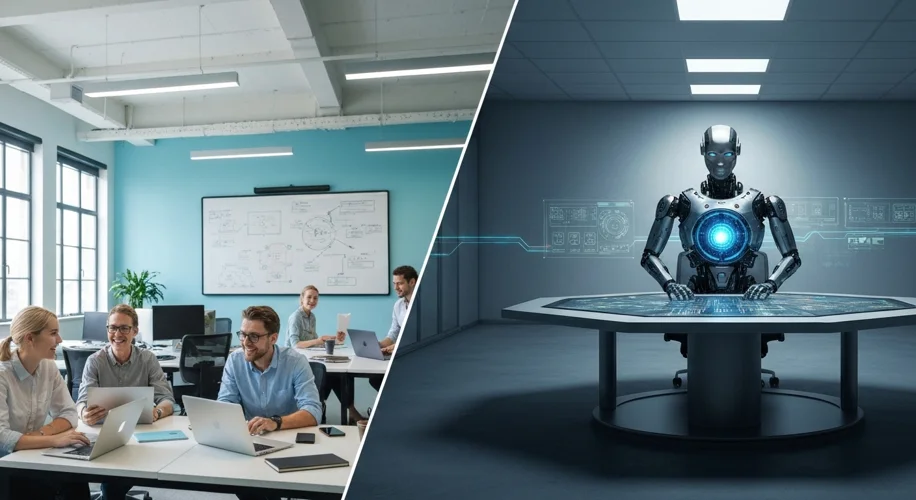Okay, so hear me out… we’re in August 2025, and the buzz around AI is still deafening. We hear about AI boosting productivity, creating new jobs, and generally making everything better. Yet, simultaneously, we’re seeing headlines about companies laying off staff. This feels… weird, right? Why are companies hiring AI talent and then… letting people go?
It’s a paradox that’s got a lot of us scratching our heads. On one hand, you’ve got companies like Google or Microsoft pouring billions into AI research and development. They’re announcing AI-powered features for everything from search to coding. The promise is that AI will be a ‘force multiplier’ – making your existing team more efficient, more creative, and frankly, better at their jobs.
But here’s the catch: for many businesses, implementing AI isn’t just about upgrading tools; it’s about fundamentally changing how they operate. Sometimes, this means tasks that were previously done by multiple people can now be handled by a single person augmented by AI, or even by AI itself. Think about customer service, content creation, data analysis, or even basic coding. AI tools are getting scarily good at these.
So, when a company invests heavily in AI, they might not be looking to hire more people to use these new tools. Instead, they might be looking to achieve the same or better output with a smaller, more highly skilled team. This is where the layoffs come in.
This brings us to a pretty critical point: the skills gap. The AI revolution isn’t just about having the AI; it’s about knowing how to use it effectively. The skills that were valuable a few years ago might not be as in-demand today. Companies need people who understand how to prompt AI, how to integrate it into workflows, how to interpret its outputs, and how to troubleshoot when it inevitably messes up.
Are we seeing a shift from needing generalists to needing specialists who can work with AI? It sure looks like it. The jobs that are growing aren’t necessarily the ones that AI can easily replicate, but the ones that involve managing, directing, and creatively leveraging AI.
This isn’t about AI replacing humans entirely, at least not yet. It’s about AI changing the nature of work. If your job involves repetitive tasks that an AI can learn, you might need to upskill. This means actively seeking out training in AI tools, prompt engineering, data science, or anything that positions you as someone who can command the AI, rather than be commanded by it.
It’s a bit of a scary thought, I know. But the flip side is pretty exciting. Imagine being able to achieve more in your workday because you’ve got an AI co-pilot. Think about the creative possibilities unlocked when you can offload the tedious stuff. The future of work isn’t necessarily fewer jobs, but it’s definitely different jobs.
So, while the layoff news can feel like a step backward, it’s a sign that companies are trying to adapt. The real challenge for us, the workforce, is to adapt with them. Are you ready to learn how to speak AI?

